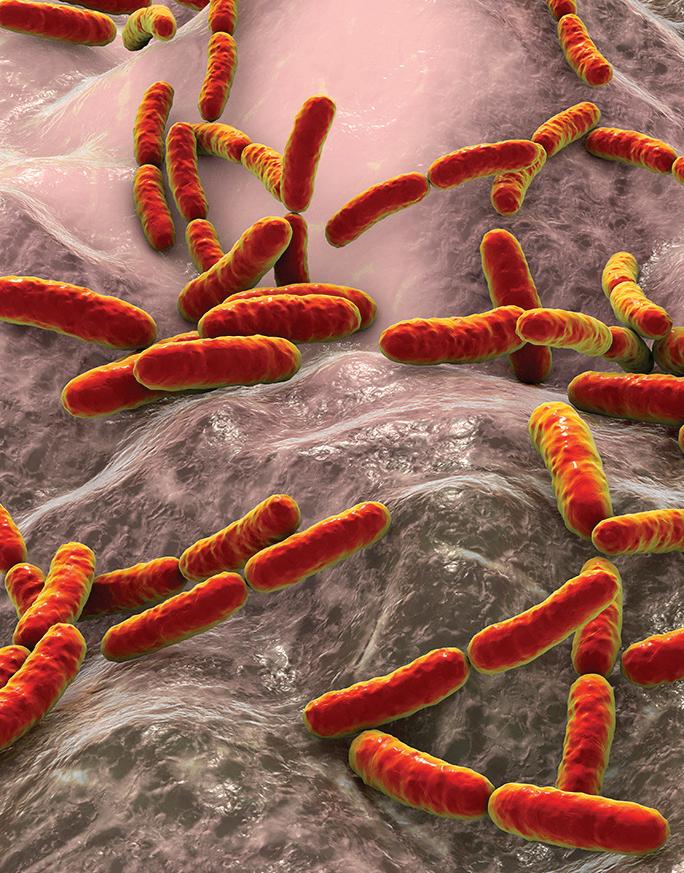
2 minute read
BCG Response Linked to Tumor Microbiome
Lactobacillus bacteria in patients with NMIBC increase internalization of bacillus Calmette-Guérin
BY JOHN SCHIESZER
Advertisement
MODIFYING the bladder microbiome may improve responses to intravesical instillation of bacillus Calmette-Guérin (BCG) for the management of non-muscle invasive bladder cancer (NMIBC), according to a new study. The findings suggest that Lactobacillus bacteria may be associated with a significant increase in the internalization of BCG.
While BCG is the gold standard for the management of NMIBC, approximately 30% to 40% of patients experience treatment failure, according to investigators.
“Recently, there’s been an increased interest in the role of the urinary microbiome in numerous urologic disease processes,” said first author Zaeem Lone, a fourth-year medical student at the Cleveland Clinic Lerner College of Medicine in Ohio. “In the bladder cancer space, no study to our knowledge has looked at how the tumor intrinsic microbiome may modulate treatment response. Therefore, this study is critical to see if we can find any associations that explain preferential response to treatment.”
The researchers performed next-generation sequencing (NGS) and shotgun metagenomics on formalin-fixed bladder tumors from patients prior to intravesical BCG therapy for NMIBC. The team examined the alpha and beta diversity in 23 responders (83% male) and 24 non-responders (88% male) and found that the overall microbiome composition differed significantly as determined by both NGS and shotgun metagenomics.
The researchers defined BCG responders as patients who had no disease recurrence 2 years after induction.
“BCG is an effective treatment option for non-muscle invasive bladder cancer; however, many patients will experience cancer recurrence requiring additional and potentially more aggressive treatment. Developing a better understanding of optimizing the efficacy of BCG may allow us to improve outcomes with bladder cancer treatment,” said study co-author Nima Almassi, MD, a urologist at Glickman Urological & Kidney Institute at the Cleveland Clinic.
The researchers validated the NGS data with GFP-tagged BCG co-cultured with a urothelial carcinoma (UC) cell line (SW780) and candidate bacteria based on the NGS data. In addition, fresh tumor samples were collected at the time of transurethral resection of bladder tumor (TURBT). Those samples were cultured under 5 different media conditions, confirming the viability of the tumor microbiome and quantifying the bacterial mass per sample.
Lone and colleagues team found that Lactobacillus species were enriched in patients who responded to BCG.
“We saw that the presence of Lactobacillus was associated with improved response,” Lone said. “In our in vitro assays to validate our sequencing data, we also observed that co-culture of Lactobacillus, BCG, and bladder cancer cells led to increased uptake of BCG into the cancer cells, which is important as internalization of BCG is the first step in engendering an immune mediated response.”
The co-culture with increasing concentrations of Lactobacillus demonstrated a significant increase in BCGGFP internalization in UCC (16%) compared with controls (6%). When the researchers examined 10 fresh tumor samples, they found that 4 samples produced viable bacteria through culture-based approaches. Tumor bacterial density was calculated at 1.25×106 colony forming units/gram of tissue.
“Utilizing next generation sequencing, we found that compositional differences do exist in the tumor microbiome of continued on page 6




